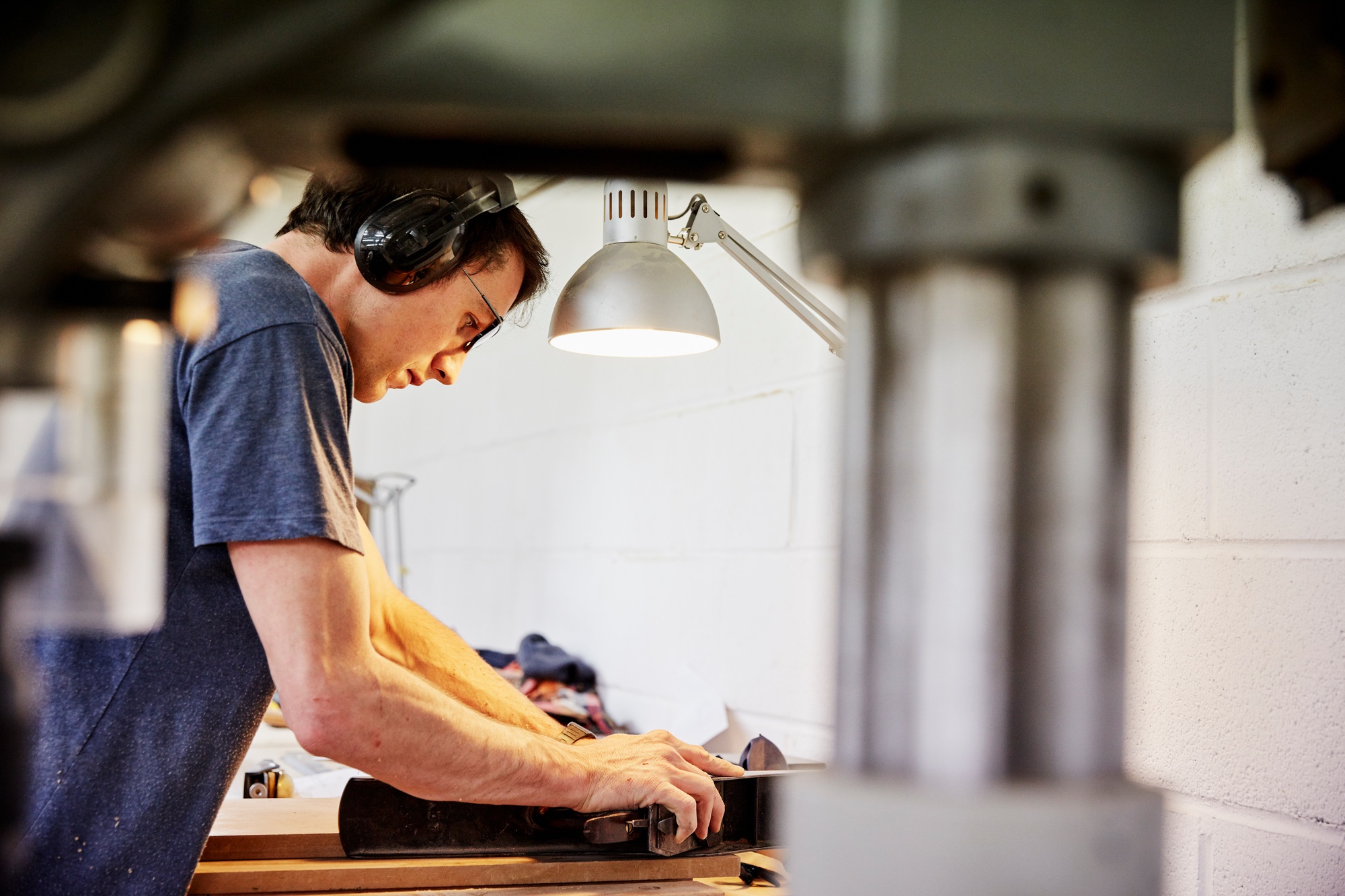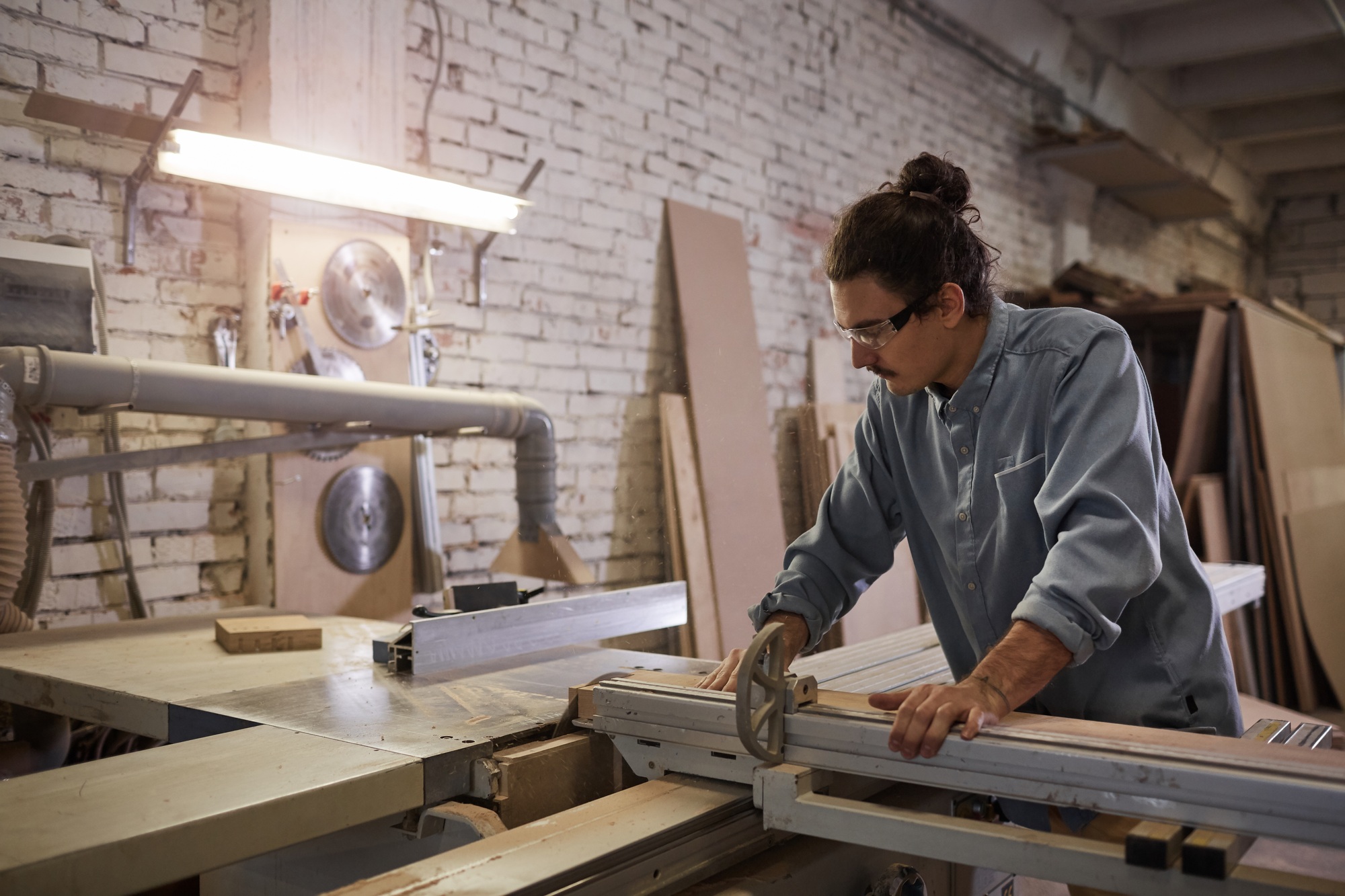Key Takeaways

- Market Understanding: Familiarize yourself with current trends in the furniture market, such as sustainability, customization, and online sales, to identify opportunities for your business.
- Target Audience: Conduct thorough analysis to define and understand your target audience, including demographics and buying behaviors, which will guide your product offerings and marketing strategies.
- Business Planning: Create a detailed business plan that outlines your vision, business model, target market, and financial projections to set a solid foundation for your startup.
- Choosing a Business Model: Evaluate different business models (retail, wholesale, online, or brick-and-mortar) to find the best fit for your skills and market demand, influencing your growth potential.
- Sourcing and Production: Identify reliable suppliers and choose appropriate manufacturing options to ensure quality and efficiency in producing your furniture products.
- Legal and Financial Considerations: Understand the legal requirements for business registration and permits, while planning your startup costs and budgeting effectively for long-term success.
Starting a furniture business can be an exciting venture that combines your passion for design with the potential for profit. Whether you’re dreaming of crafting unique pieces or curating stylish collections, the furniture industry offers endless opportunities for creativity and entrepreneurship.
In today’s market, consumers seek quality, sustainability, and innovation. To stand out, you’ll need a solid plan that covers everything from sourcing materials to marketing your brand. Understanding the ins and outs of this competitive landscape is crucial for turning your vision into a thriving business. Let’s explore the essential steps to kickstart your journey in the furniture world.
Understanding the Furniture Market

Grasping the nuances of the furniture market is essential for small business success. Knowing current trends and understanding your target audience can significantly enhance your startup’s chances of thriving.
Trends and Opportunities
Current trends in the furniture market reflect a growing demand for sustainability, customization, and multifunctional designs. Many consumers prioritize eco-friendly materials and ethically sourced products. Opportunities exist for brands that focus on innovative designs, such as modular furniture that maximizes space in small living areas. The rise of online furniture sales presents another opportunity; you can reach a broader audience through e-commerce platforms. Additionally, the trend towards home office setups has created a niche for functional office furniture suited for remote work.
Target Audience Analysis
Identifying your target audience is crucial to tailoring your products and marketing strategies. Focus on demographics such as age, income level, and lifestyle. For example, millennials often seek affordable, stylish options for their homes. Baby boomers may prioritize comfort and durability in their furniture choices. Conducting surveys or market research can yield insights into preferences and buying behaviors. Understanding your audience enables effective communication and marketing efforts. This approach enhances your startup’s connection with consumers, fostering brand loyalty and trust.
Business Planning

Effective business planning is a cornerstone for your startup in the furniture industry. This phase helps you outline your vision and sets the stage for future success.
Creating a Business Plan
Creating a business plan for your furniture business involves several critical components. Begin with an executive summary that encapsulates your vision. Include a description of your business model, whether it’s furniture making, designing, or curating collections. Detail your target market based on your market research. Analyze competitors and address how your offerings fulfill consumer needs. Financial projections are crucial; estimate costs, revenue, and funding options. Tools like business plan templates can simplify this process, ensuring you cover essential aspects. A well-crafted business plan is essential when starting a small business.
Setting Goals and Objectives
Setting clear goals and objectives streamlines your business direction. Define short-term and long-term goals, incorporating specific, measurable outcomes. Short-term objectives might include launching your website within three months or establishing supplier contracts within the first quarter. Long-term goals could involve expanding your product line or reaching a specific annual revenue target within five years. Regularly revisit and adjust your objectives as your business grows to stay aligned with evolving market trends and consumer demands. Strategic goal-setting enhances focus, allowing you to measure success effectively as you navigate how to start a small business.
Choosing a Business Model

Choosing the right business model is crucial for your furniture startup. You can select from several options based on your skills and market demand.
Retail vs. Wholesale
- Retail involves selling furniture directly to consumers. This model allows for higher margins but requires robust marketing and excellent customer service. You’ll need to create a distinctive shopping experience to attract shoppers to your furniture pieces.
- Wholesale means selling your furniture in bulk to retailers or distributors. This option typically results in lower profit margins but ensures faster inventory turnover. It’s essential to build relationships with retailers to expand your market reach and increase volume sales.
Online vs. Brick-and-Mortar
- Online stores offer an opportunity to reach a global audience. You can sell through an e-commerce platform, which minimizes overhead costs and provides flexibility in inventory management. Use effective SEO strategies to drive traffic to your site.
- Brick-and-mortar stores allow customers to physically interact with furniture. Showcasing products can enhance consumer trust and lead to higher sales. However, this approach requires a significant investment in location, staffing, and maintenance.
Selecting the appropriate model influences your startup’s growth trajectory. Evaluate market preferences and your business goals to make an informed choice.
Sourcing Materials and Production

Sourcing materials and production options is critical for your furniture startup. Understanding these aspects helps ensure quality products and operational efficiency.
Finding Suppliers
Finding reliable suppliers is essential for a successful small business. Start by researching potential suppliers who specialize in the materials you need. Attend trade shows and industry events to connect personally with manufacturers and distributors. Request samples to evaluate quality, and consider factors like pricing, lead times, and minimum order quantities. Verify supplier credentials and certifications to ensure they meet industry standards. For instance, suppliers with Forest Stewardship Council (FSC) certification demonstrate a commitment to sustainable practices, which aligns with consumer demand for eco-friendly products.
Manufacturing Options
Selecting the right manufacturing option influences your product quality and cost structure. Evaluate different approaches, such as in-house production or outsourcing to contract manufacturers. In-house production allows for greater control over quality and design, while outsourcing can reduce overhead costs and improve scalability. Consider factors such as the necessary equipment, labor costs, and production timelines when making this decision. Collaborating with local artisans can enhance craftsmanship and appeal to consumers seeking unique, handcrafted items. Alternatively, explore automated solutions for efficiency and cost-effectiveness. Prioritize options that align with your business model and target market preferences.
Marketing Strategies

Marketing strategies play a vital role in ensuring your furniture business stands out in a competitive market. Utilize effective branding and advertising techniques to attract potential customers and drive sales.
Branding Your Furniture Business
Branding creates a strong identity for your furniture business, helping you connect with customers. Choose a unique name and logo that resonates with your target audience. Define your brand’s mission and values, emphasizing quality and sustainability to align with current consumer preferences. Develop a consistent voice across all platforms, including your website and social media, to enhance brand recognition. Engage in storytelling to showcase your design process, craftsmanship, and the inspiration behind your products. Highlight customer testimonials and success stories to build trust and establish credibility in the furniture sector.
Effective Advertising Techniques
Advertising influences your business’s visibility and customer reach. Employ a mix of digital and traditional advertising techniques to maximize impact. Utilize social media platforms like Instagram and Pinterest for showcasing your furniture designs through eye-catching images and videos. Create targeted ads based on demographics and interests to reach potential customers effectively. Invest in search engine optimization (SEO) to drive organic traffic to your website, making it easier for customers to find your products. Consider partnerships with influencers in the furniture and home decor niche to generate authentic engagement. Attend trade shows or local markets to gain exposure and establish connections within the community.
These marketing strategies empower you to effectively promote your furniture business, attracting customers and fostering growth as you navigate the challenges of starting a small business.
Financial Considerations

Starting a furniture business requires careful financial planning. Several critical aspects must be taken into consideration to ensure successful execution.
Initial Startup Costs
The cost to start a business in the furniture industry varies significantly. Initial investments can range from $20,000 to $500,000 or more, depending on factors such as business scale, location, and inventory quality. For a smaller startup, consider an initial investment between $15,000 and $70,000, especially if launching with an online store or a small showroom.
Budget Components
Include these key components in your budget:
Store Lease and Renovation
- Renting a retail space typically costs between $2,000 and $10,000 per month.
- Anticipate security deposits and first month’s rent to total about $4,000 to $6,000.
- For renovations, budget around $5,000 to $15,000 to create an appealing environment for customers.
Effective financial management is vital for your success. By understanding these financial considerations, you can formulate a robust plan while learning how to start a small business in the furniture market.
Legal Requirements

Starting a furniture business involves specific legal requirements to establish legitimacy and safeguard your interests.
Business Registration and Legal Entity
Register your business as a legal entity, such as a Limited Liability Company (LLC), corporation, sole proprietorship, or general partnership. Registering with your state’s corporations office provides legal protection and tax benefits. Choosing the right entity affects taxation, risk exposure, decision-making, and financing options. For instance, an LLC limits personal liability and offers tax benefits similar to an S-corporation.
Business Licenses and Permits
Obtain a business license from your local government or municipality. This grants the authority to operate your business legally. The application involves filling out forms, paying a fee, and providing necessary supporting documents. Different cities and states may require additional permits, so check local regulations to ensure compliance.
Adhering to these legal requirements creates a solid foundation for your small business startup, enabling you to focus on growth and innovation in the furniture market.
Conclusion

Starting a furniture business is an exciting journey filled with opportunities. By combining your passion for design with a clear understanding of market trends and consumer demands, you can carve out a niche in this dynamic industry.
Focus on creating a solid business plan that outlines your goals and strategies. Remember to choose the right business model that aligns with your vision and market preferences.
Effective marketing and financial management will play crucial roles in your success. Embrace the challenges ahead and stay adaptable as you grow your brand. With dedication and strategic planning, your furniture business can thrive in today’s competitive landscape.
Frequently Asked Questions

What are the current trends in the furniture market?
The current trends in the furniture market include a growing demand for sustainability, customization, and multifunctional designs. Consumers are increasingly interested in innovative solutions like modular furniture and the convenience of online shopping. Staying attuned to these trends can help businesses align their offerings with consumer expectations.
How can I create a successful business plan for a furniture startup?
To create a successful business plan, include an executive summary, business model description, target market analysis, competitor assessment, and financial projections. Setting clear short-term and long-term goals is crucial for maintaining focus and measuring success. Regularly revisiting this plan can help adapt to changing market conditions.
What business model should I choose for my furniture business?
Choosing between retail and wholesale models is critical. Retail allows for higher margins but needs strong marketing; wholesale offers quicker inventory turnover with lower profits. Also, consider online vs. brick-and-mortar stores based on your market preferences and business goals to ensure a solid growth path.
How do I source materials for my furniture business?
To source materials effectively, research reliable suppliers through trade shows and personal connections. Evaluate supplier quality, pricing, and sustainability certifications like the Forest Stewardship Council (FSC) certification. Align your material sources with your business model for optimal production efficiency and environmental responsibility.
What marketing strategies work best for a furniture startup?
Strong branding is key for a furniture startup. Create a unique name and logo that resonates with your target audience. Utilize a mix of digital and traditional marketing strategies, including social media, targeted ads, SEO, and influencer partnerships to effectively reach customers and differentiate your brand.
What are the financial considerations when starting a furniture business?
Initial startup costs for a furniture business can range from $20,000 to $500,000, depending on factors like business scale and inventory. For smaller startups, aim for an investment between $15,000 and $70,000. Key budget components include lease costs and renovation expenses, which are essential to financial planning.
What legal requirements do I need to fulfill to start a furniture business?
To start a furniture business, register as a legal entity, such as an LLC or corporation, to gain protections and tax benefits. Additionally, obtaining necessary business licenses and permits from local authorities is crucial for legal operation, ensuring a solid foundation for growth and innovation.
Image Via Envato



